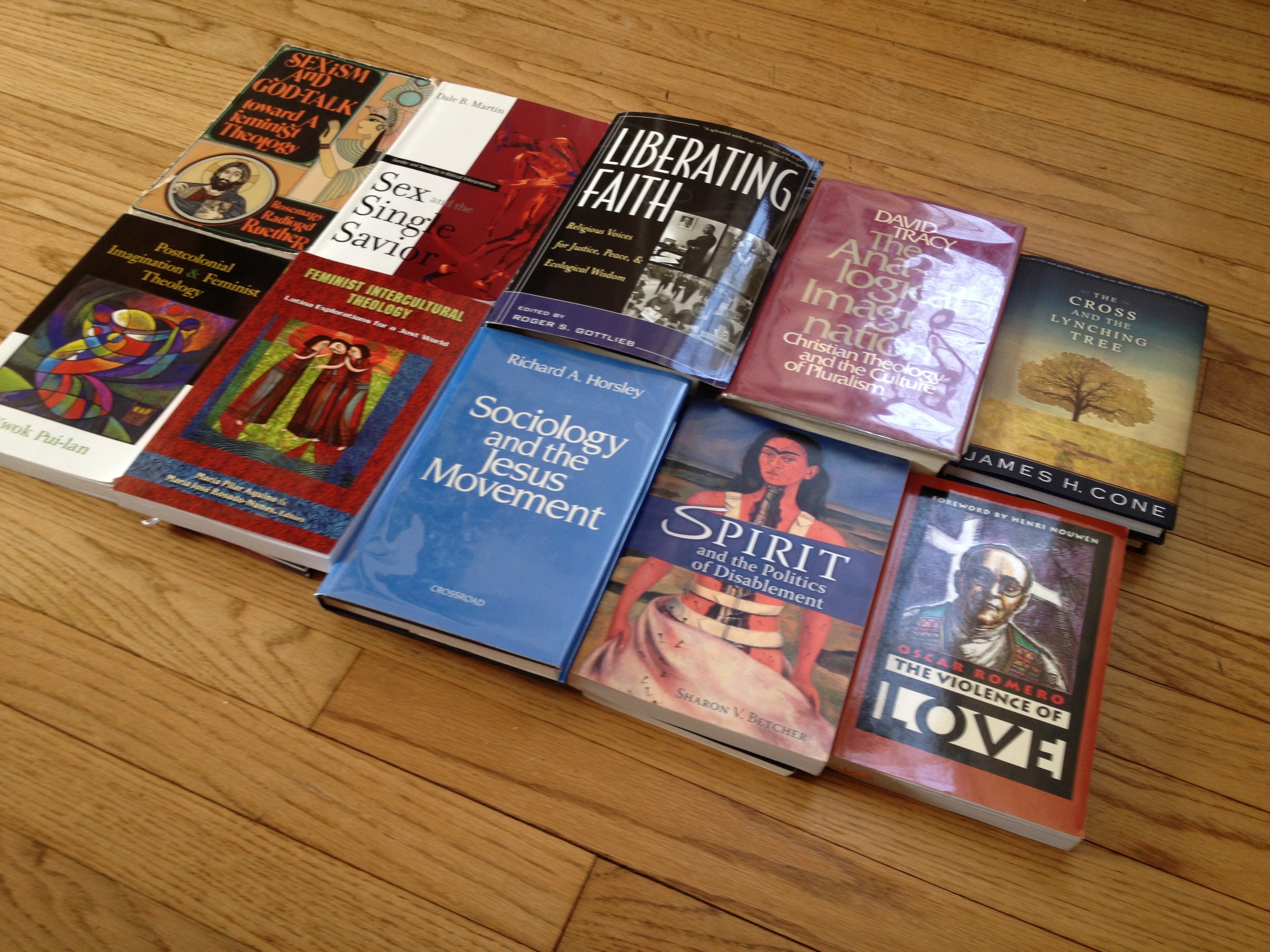(click on above photo and scroll down for full photo image)
Liberating spirit as Christian involves two tasks that demand both theoretical and practical response. These tasks – one deconstructive, the other constructive – are distinguished throughout my writings, but also are often interwoven with one another. Sometimes they occur simultaneously, working together, as in the article, “Counter-Imperial Faith.” Both tasks are essential to the intellectual work of Christian theological discourse.
Deconstructive Task
This “deconstructive” task exposes, criticizes and seeks to end those Christian practices and beliefs that reinforce class exploitation, white racism, gender and sexual injustice, neocolonialism and imperialism. Such a first task also opens a space for experimenting with forms of Christian thinking and practice that have long been repressed or marginalized. This is especially important today as Christian groups often support U.S. war-making (overt and covert), and are compliant, too, with the neoliberal globalization policies that destroy lives and communities. Throughout my publications, I have long called for a delinking of Christian belief from U.S. imperialism, and from the multiple ways that imperialism – together with white racism, heteronormative sexuality and colonialism – are at work in contemporary police violence, the death penalty and U.S. mass incarceration. The stakes are high for Christian practice in the U.S., especially if we recall Alain Badiou’s reminder that “there cannot be the least political liberty, the least independence of mind, without a constant and unrelenting struggle against the imperium of the USA . . . the deadly guarantor of the obscene accumulation of wealth . . . the American Army the key instrument in the race of ‘Western’ masters against all the unfortunates of the earth” (Polemics, 2006, p30). The work of “de-imperializing” Christian theology- and generally deconstructing it – is most evident in my books, Remembering Esperanza, The Executed God, and Religion, Politics and the Christian Right: Post-9/11 Powers and American Empire.
Constructive Task
In the wake of deconstructing Christianity, there is also a constructive (or, reconstructive theologial task). For this task, I work mainly historically, socially and politically – with key help from the arts (whether of literature, painting, music, and more) – in order to reconstruct key beliefs of Jesus-followers for liberating spirit today. My aim here is not to restore Christianity to any position of privilege over other religions and spiritualities. I seek in reconstructed Christian beliefs no new “better” hegemony. Instead, I seek to reconstruct Christian being in the world, understood as its co-habitating with earth and with all peoples (with those of all religions or no religion) fomenting new practices in coalitions that forge justice and love for enduring revolutionary futures. For examples of Christian theologians’ creative work at the reconstructive task, see the book I edited with Professor Rebecca Chopp, Reconstructing Christian Theology.
The aim in this constructive or reconstructive task is to contribute to the building-up of Christian liberating faith as counter-imperial and counter-colonial. For this I find resources from “underground” traditions that have persisted throughout the Christianity-dominated West, even in Europe and the United States. Moreover, I have been instructed by the liberating use of Christian beliefs among peoples in resistance across the global South of colonial pasts and the (neo-)colonial present.
I have also attempted to reconstruct Christian beliefs and symbols so that those who dwell in social worlds of entitlement can betray our entitlements – those due, for example, to our whiteness, our being male, relatively affluent and so on. “Betrayal,” though, may not be the only appropriate response. Those of us with access to worlds of social “privilege” might also deploy that access to liberating ends. Yet, whether as “betraying” or “deploying” such entitlements, I emphasize that white males and others in positions of privilege, especially those in hegemonic Christian systems, cannot be – will not be – the central architects and agents of liberatory change. At most, they contribute work in theory and practice that reinforces liberating and de-imperializing change. The initiative and leadership is forged, driven and orchestrated by leaders of the many dispossessed and repressed communities.
But what imight be the distinctive contribution of Christian liberating spirit? Using historical scholarship of both early Jesus-movement materials and from the practices of contemporary Christian communities of liberating practice, I have foregrounded three key dimensions of Christian liberating spirit. Each of these have received chapter-length treatments in my book, The Executed God, and there are presented as dimensions of Jesus’ “way of the cross” in history and society. But this “way of the cross” is not simply an idealized version of individual pilgrimage, a single person’s “following Jesus.” It can be that, but it is more a collective process of people artfully drawing from Christian symbols and intellectual traditions to forge a social resistance and affirmation of life in relation to earth and its peoples.
These three dimensions of a Christian liberating spirit, as set forth below, correspond to the three aspects of liberating spirit: antagonism, the popular arts, and social movements that are discussed on the Home Page.
